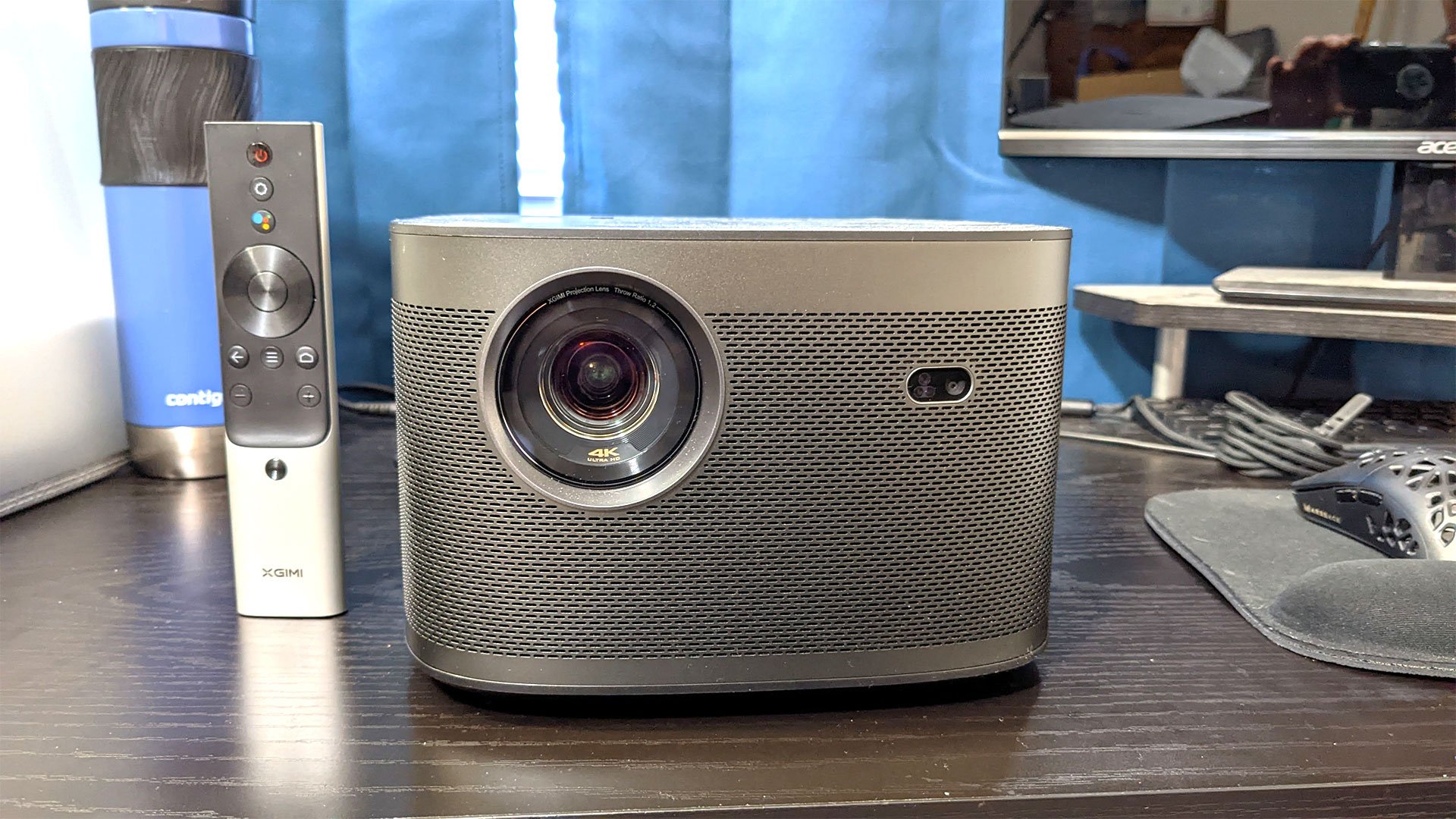XGIMI is a company dedicated to creating “multifunctional intelligent projectors and laser TVs” in an effort to provide consumers with the best experience. One of their projectors is the Horizon Pro and they were kind enough to send me one of these projectors to review. I am thankful for the projector and all thoughts that follow are my own thoughts. If you like what you read, you can pick up your Horizon Pro projector from XGIMI or Amazon with an MSRP of $1,899 (you can pick it up for just $1275 between November 23-28).
First, what is Horizon Pro? It is a 4K UHD projector that is advertised to reach a screen size of 200 inches. It is rated at 2,200 ANSI lumens; it automated screen alignment, focusing, and obstacle avoidance; built-in Android TV; a latency of 35 ms in game mode; and is compatible with HDR10. Physically, the projector measures 208.4 x 218.4 x 136.2mm and weighs just 2.9kg. The projector comes with a remote control and has two HDMI ports (one is supported by ARC), two USB ports, a LAN port, a 3.5mm headphone jack, an optical audio jack, dual-AC Wi-Fi band and Bluetooth 5. If you don’t have a nice speaker system, the Horizon Pro includes two 8W Harman/Kardon speakers. It also includes 32GB of storage and 2GB of RAM.
Now, how does all of this work in the real world? Very good! I love the Horizon Pro projector. It’s not the brightest projector out there, but the 2,200 ANSI lumens still performs well enough with some lights on, though the fewer the better. I don’t have a projector screen, but unless I was very close to the wall, I didn’t even notice the texture of the wall. It works very well without a screen. Also, the automatic obstacle avoidance and focus works so well and fast. There are times when obstacle avoidance seemed to struggle, but it was always when the projected screen started reaching the ceiling and several walls. If I’ve been able to adjust it so it doesn’t hit the ceiling, it has always been able to self-adjust precisely. That said, you can also manually adjust the screen size to make things even more perfect. Horizon Pro was also a breeze to set up. The only downside is that it struggles with some apps natively like Netflix, but it has a Chromecast built in, so it’s really not a big deal.
I took some time and connected both my Nintendo Switch and my Xbox Series S to the Horizon Pro. Once again it worked very well. I set it to game mode and had no problems with any of the games I launched. There was no noticeable lag and the image looked great. I can’t wait for the holidays when I see the family and we can have the big party games on a huge wall with this thing.
One thing to note with the Horizon Pro is that it has motion smoothing as a feature. This can create an ultra-smooth and somewhat controversial image. The good news is that you can turn it off in Settings, so if you hate it, you don’t have to live with it.
I’ve mostly used my soundbar with the Horizon Pro, but took some time to check out the built-in speakers. They’re not speakers you’ll want to use long-term, but they’re surprisingly good. Audio is clear and perhaps even better than many built-in TV speakers. If you can’t connect better speakers for whatever reason, the built-in speakers will get the job done. I would still recommend getting a nicer set or soundbar.
I feel like I’m being a little picky when it comes to finding cons for the Horizon Pro. My biggest gripe is that the remote lacks a source button. I’m also a little annoyed that the remote isn’t rechargeable (it takes two AAA batteries). My only other complaint is that it could be brighter. Like I said, 2,200 ANSI lumens isn’t bad, but more is always nice.
Overall, I would recommend XGIMI’s Horizon Pro if you can afford it. It’s a solid 4K HDR10 projector that works well for movies, TV, and gaming. The auto adjust features are great, built in Android TV and Chromecast let you watch just about anything and you don’t need a screen. This gets a big thumbs up from me.
by Tommy Williams
Source: Geek Tyrant
Bernice Bonaparte is an author and entertainment journalist who writes for The Fashion Vibes. With a passion for pop culture and a talent for staying up-to-date on the latest entertainment news, Bernice has become a trusted source for information on the entertainment industry.

